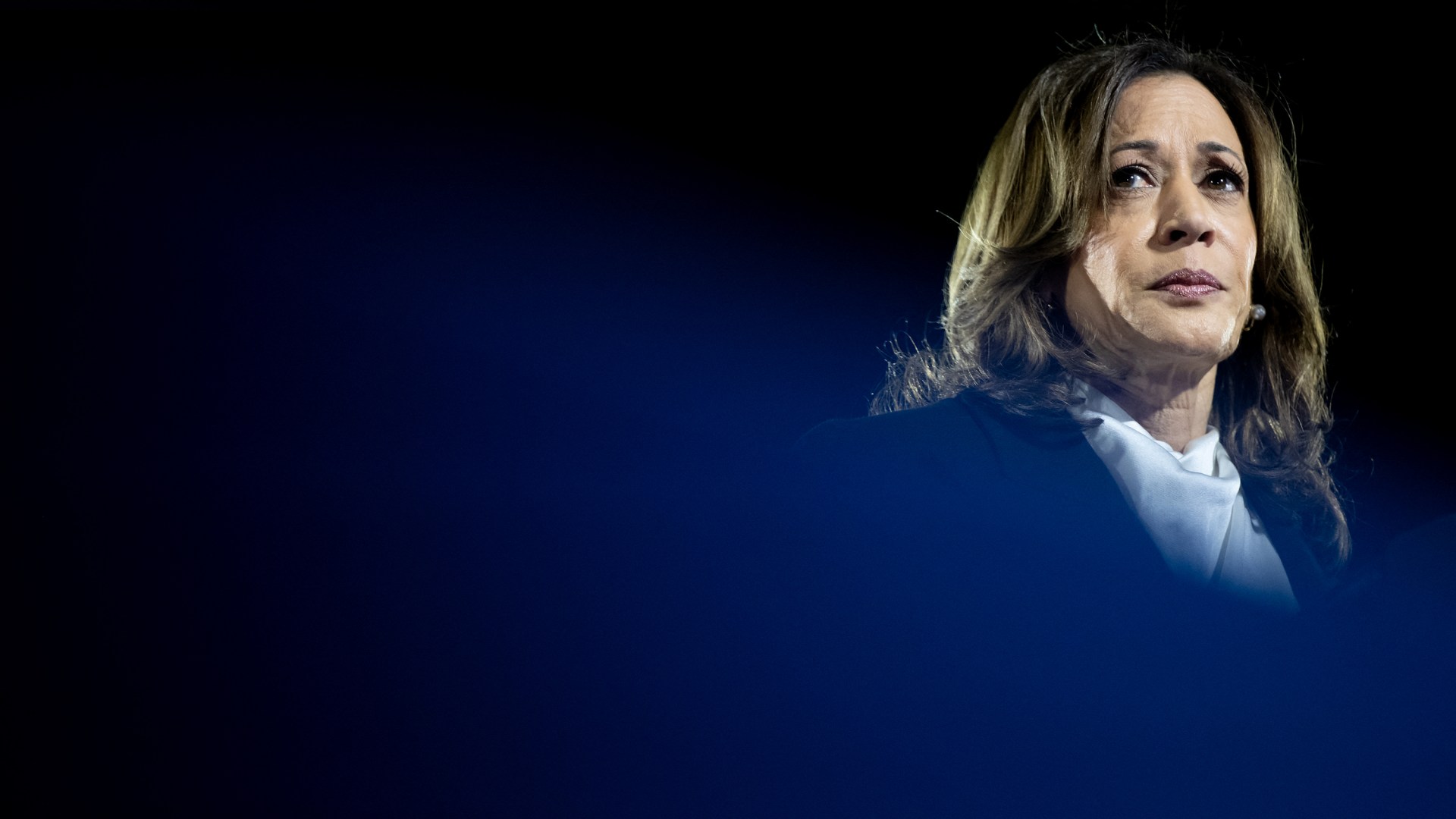As a first grader, I had the same daily after-school routine. I had a five-minute walk past bustling skyscrapers and scooters crowding the streets of downtown Taipei, Taiwan, to my family’s apartment, where my grandparents would greet me. My grandma would remind me to greet the ancestors before I could play with my Transformer robots. I’d pick up a stick of incense, clamp my palms together, and pray a simple prayer to the ancestral shrine in the middle of the living room.
I asked for health, wealth, and good grades. Then I’d snack on the crackers that had been offered to the ancestors and deities in the shrine. Life was good. My hardworking parents provided for me, my grandparents watched me, and my ancestors blessed and protected me.
At the time, I had never heard the gospel, and what I did hear about Christianity from my grandparents was negative: Christians were out to get my money, and Christianity simply was “not our way.” Our way was Chinese folk religion, which mixed elements of Confucianism and Daoism (Taoism) with a plethora of deities, ancestors, and shamanistic rituals.
My mother always taught me about the efficacy of prayer to a deity called Jesus, so I prayed to him along with the others. It was not until high school that a classmate told me the gospel and I gave my life to this Christian God.
About 30 years later, I wrote Religiosity and Gospel Transmission: Insights from Folk Religion in Taipei to explore how folk religion shapes the worldview of Taiwanese people so that Christians can share the gospel effectively. Today, Christians only make up 6 percent of Taiwan’s population, while adherents to folk religion compose 44 percent, according to Pew Research Center. Taiwan has the third-highest percentage of folk religion followers in the world.
While my research focused on my home of Taiwan, Chinese folk religion is a widely held belief system among ethnic Han Chinese around the world. The specific practices may differ across geographic contexts, but the ideas and religiosity, such as feng shui or the unseen realm, of the people are quite similar.
Through interviews with 25 people in the streets and temples of Taipei on their thoughts on religiosity, I began to see two key questions that Christianity needed to answer for Taiwanese people enmeshed in the world of folk religion, whether they believe it deeply or not. How does Christianity engage with the spiritual realm? And how does it help the everyday life of the Taiwanese?
The gospel to believers in the spirit world
Chinese American sociologist C. K. Yang noted that Chinese folk religion is a diffused religion—meaning that it pervades everyday life, intruding secular spaces in a way that institutional religion does not often do. For instance, in ethnic Chinese communities around the world, it is common practice for stores to offer up food and incense to certain deities at their grand openings to ask for blessing and prosperity.
This means that instead of disenchanting folk religion like it has the rest of the world, modernity has had a vastly different effect on Chinese religiosity. Folk religion ensures that secular institutions and social groups are “imbued with a rich folklore of a supernatural character,” Yang wrote in Religion in Chinese Society. “The social environment as a whole had a sacred atmosphere which inspired the feeling that the gods and spirits, as well as man, participated in molding the established ways of life in the traditional world.”
The pervasiveness of folk religion in everyday life and social institutions—including government offices and schools—has made it a key part of Taiwanese consciousness, as much so as modern-day politics. This does not mean that all Taiwanese are still “enchanted by the supernatural,” as philosopher Charles Taylor puts it in A Secular Age, but that the “supernatural” has become part of an accepted experience of the people.
In this context, a presentation of the gospel should directly address the forces of ghosts, spirits, local deities, and ancestors that make up Taiwanese people’s lived realities.
For instance, on certain days of the year, the streets of Taipei are crowded as people carrying statues of local deities parade from one temple to the next. Mao-Hsien Lin, a leading expert on folk religion in Taiwan, explained that the parades are spiritually analogous to the patrol of police officers, as their purpose is to “get rid of evil [spirits] and calm the people’s hearts.”
If the gospel fails to do the same, it would be perceived as useless in Taiwan. Based on the interviews I did, demons and evil spirits are a real concern today in many parts of Taiwan. So the church needs a better theology and practice of exorcism. The gospel must be seen not just as insurance for the afterlife but as protection in this life against real or perceived spiritual forces.
One practical example is telling non-Christians about the power of Jesus’s name to drive back demons that may be attacking one’s house or the power of prayer to do things that no spirits or deities could do.
Taiwan’s charismatic churches are already known for doing this. Because the unseen realm is normal in Taiwan, most churches in Taiwan “have always understood the supernatural aspect of faith as recorded in the Scripture in a literal sense—which can be tasted and seen in the present day,” according to Judith C. P. Lin in The Charismatic Movement in Taiwan from 1945 to 1995. It’s what led the charismatic movement to grow so successfully on the island, she argued, noting that an estimated one-third of Taiwanese Christians have lean charismatic.
In both charismatic and noncharismatic groups, Taiwanese Christians regularly pray for deliverance, miraculous healings, and protection amid demonic warfare. These gospel practices reveal to Taiwanese people the power of God, ways to pray, the danger of spirit-mediums, and other issues are related to their everyday life.
This approach has been taught in churches, especially since the 1980s. Yet in my interviews, few people mentioned Christians speaking to them about the unseen realm. Perhaps this approach could be used more frequently for initial gospel encounters, as a gospel that adequately addresses the spiritual realm will see more responses in Taiwan.
The gospel’s implications on daily life
Another important aspect to consider when reaching Taiwanese nonbelievers is what they are seeking when they approach the gods and deities of folk religion. While gospel presentations in the West focus on more abstract concepts like how Christianity provides forgiveness of sins, new life, and hope for eternity, Taiwanese people are more interested in practical, everyday concerns.
For instance, they ask the god Guan Sheng DI Jun to help them get promoted. They ask the earth God to protect their home from thieves. They beseech Yue Lao to bring them a romantic partner.
Gospel presentations to Taiwanese people need to address how or if the gospel can help them in these practical ways. Today, many Christian teachers exhort us to gospel living—how we as Christians can live according to the grace and responsibilities given to us—but what about the gospel in daily life?
When your business is not doing well, what is the gospel’s answer to that? When you live in a crime-ridden neighborhood, how does the gospel protect you? When you are 38 years old and unable to find a spouse, where does the gospel come in? The easy answers of “have more faith” and “turn to Jesus” are not concrete enough to address the real concerns that people have.
Some Christians who have attended church for a while start to understand how the gospel can apply in specific situations. But non-Christians are not aware of this. In my interviews, I found that many Taiwanese non-Christians viewed the abstract gospel as “irrelevant,” “stupid,” or “arrogant.” Some even mistook it for another mystic chant. Until the gospel starts explicitly addressing situations in daily life, most Taiwanese non-Christians will likely remain uninterested and unconvinced.
Folk religion provides answers and concrete rituals for situations that people encounter in everyday life. Through customs, rituals, and special holidays like Tomb Sweeping Festival, folk religion in Taiwan provides a sense of security and situation-specific assurances. It does not have complicated doctrines for people to grasp—all they need to do is visit the temple and pray to the deity.
Therefore, an abstract gospel does little for most Taiwanese. What many Taiwanese need is a more down-to-earth gospel that addresses the same things that folk religion deities address: daily lives and felt needs. These needs are not a side project for the deities but their sole purpose.
A contextual approach to gospel presentations in Taiwan should frame the Lord as better than the goddess Mazu in her protection of fishermen, better than the earth God in his protection of land, better than Guanyin in her compassion for people, better than Lord Superior Wen Chang in his concern for academia, and better than Yue Lao in his understanding of love.
That doesn’t mean Christians should water down the gospel or make it only about fulfilling daily needs. The gospel has eternal significance and brings a person into a relationship with the Lord. The gospel is also not about fulfilling one’s desires; rather, it is about fulfilling the desires of God. Taken to the extreme, this kind of prosperity gospel robs Jesus’ focus on the kingdom, John’s call to love, and Paul’s admonition to live a life worthy of the calling we have received.
In Jesus’ ministry, he encountered people and provided for both their external and spiritual needs. Jesus spoke about how to deal with a Roman soldier asking a civilian to carry luggage or other items (Matt. 5:41). He spoke about paying taxes (Mark 12:17) and how often to forgive people (Matt. 18:21–22). Abstract truth sometimes came with the fulfillment of daily needs and sometimes did not. Even in large-scale public meetings like the Sermon on the Mount, Jesus taught people how to act in daily life.
When evangelizing to Taiwanese people, it is important to discuss the challenging issues they are facing. Christians could ask adherents of folk religion about the last deity they visited and what they were seeking. Knowing the answers to these questions can help Christians explain how the gospel speaks directly to their concerns, how God can solve their problems, and how God can do more than any deity.
Sometimes God does not fulfill every felt need. But that does not mean the gospel does not speak on a given subject. For instance, the gospel teaches people not to worry about money or promotions but to “seek first his kingdom and his righteousness, and all these things will be given to you as well” (Matt. 6:33). On the question of protection, the gospel teaches that God “will command his angels concerning you to guard you in all your ways” (Ps. 91:11). For someone seeking a romantic partner, the gospel teaches us about love itself (1 Cor. 13).
To show that the gospel of Jesus Christ is necessary and vital amid a culture seeped in folk religion, Christians need to show that God is more powerful than the spirits and deities that threaten the Taiwanese people and that he is a better answer to the daily needs of their lives.
The result is a gospel that is truly “good news” for Taiwanese people and an appeal that can take root in this culture.
Tony Chuang is a pastor, conference speaker, adjunct lecturer, and business director from Taiwan who is currently living in Penang, Malaysia. He received his PhD from Trinity Evangelical Divinity School.
This excerpt was adapted from Religiosity and Gospel Transmission: Insights from Folk Religion in Taipei by Tony Chuang. Copyright © 2024 Langham Academic. All rights reserved. No part of this excerpt may be reproduced or reprinted without permission in writing from the publisher.





















































